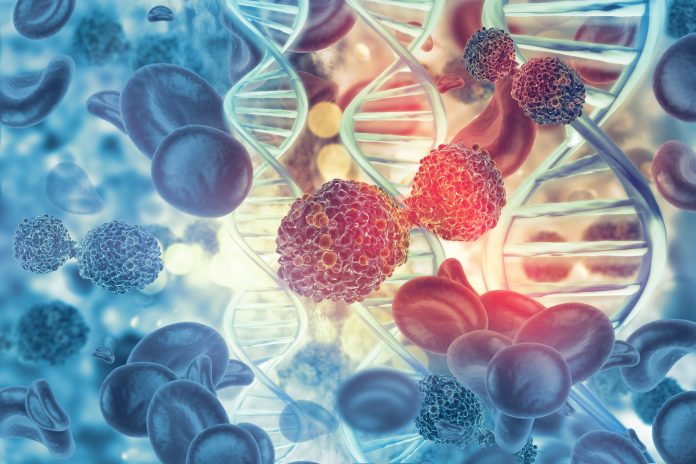
KRAS is one of the most common cancer-causing genes in humans. To date, researchers have been unable to design a small molecule to block its active form because it lacks a binding pocket. Now, researchers report in Science how they have created a molecular glue that allows the binding of mutant KRAS and the inhibition of cell proliferation and tumor growth in laboratory experiments, making KRAS ‘druggable.’
The findings have implications for treating numerous cancer types involving mutations of KRAS and the RAS family of proteins to which it belongs.
“The approach [we describe] is applicable to multiple RAS mutations that collectively underlie a third of all human cancers,” says Piro Lito, MD, PhD, senior author of the paper and a physician researcher at Memorial Sloan Kettering Cancer Center.
Patients living with cancers dependent on mutant RAS proteins for growth, called RAS-addicted cancers, account for 30% of all human cancers. These are often more aggressive cancers for which patients are likely to have poorer response to standard treatment. Therefore, therapies that target specific RAS mutations would meet a significant medical need, Lito says. “Pending further clinical development, molecular glues could revolutionize cancer therapy for patients living with RAS-addicted cancers.”
For the current study, Lito led a group that included researchers at Revolution Medicines, Inc., a Redwood City, CA-based company. The team designed several molecules they showed to have the same inhibitory activity. They began by creating a molecule inspired by sanglifehrin A, a natural product known to bind to cyclophilin A (CYPA). CYPA is a cellular chaperone, which means it helps with the folding and unfolding of proteins. The researchers combined their molecule with CYPA, creating a sticky surface with an affinity for binding to KRAS. They refer to this process as chemical remodeling. They used the remodeled CYPA-molecule complex in their experiments.
The team treated active KRAS mutant cell lines with the CYPA-complex and showed the bound form of KRAS lost its signaling activity. They then tested the CYPA-complex on cell lines and tumorigenic mice with active KRAS mutation. The experiments showed the complex was able to inhibit proliferation in the cell lines and, after a month of daily treatment, lead to near complete tumor regression in the mice.
“The compound shrank tumors in preclinical models of non-small cell lung cancer and colorectal cancer, two cancer types with frequent KRAS mutation,” Lito notes. Pancreatic cancer is a third type of cancer dependent on mutant KRAS.
Normal KRAS protein cycles between active and inactive states and is involved in the regulation of cell division due to its ability to relay external signals to the cell nuclease.
According to Lito, efforts to target the active state of mutant KRAS by conventional drug discovery strategies have lagged significantly behind those for inhibitors of the inactive state of KRAS. “In principle, inhibiting the active state could be a more direct and potentially more effective way of blocking tumor growth,” he says.
The successful development of a molecular glue that allows for the inhibition of KRAS has broad implications for cancer therapy, Lito says. The technology can be used to develop inhibitors of additional oncogenic RAS mutants. Two additional RAS inhibitors are currently in clinical development, he adds. “Moving beyond RAS, it is also possible that this approach of reengineering of natural products to bind with a cellular chaperone could prove effective at targeting additional ‘undruggable’ cancer drivers.”











